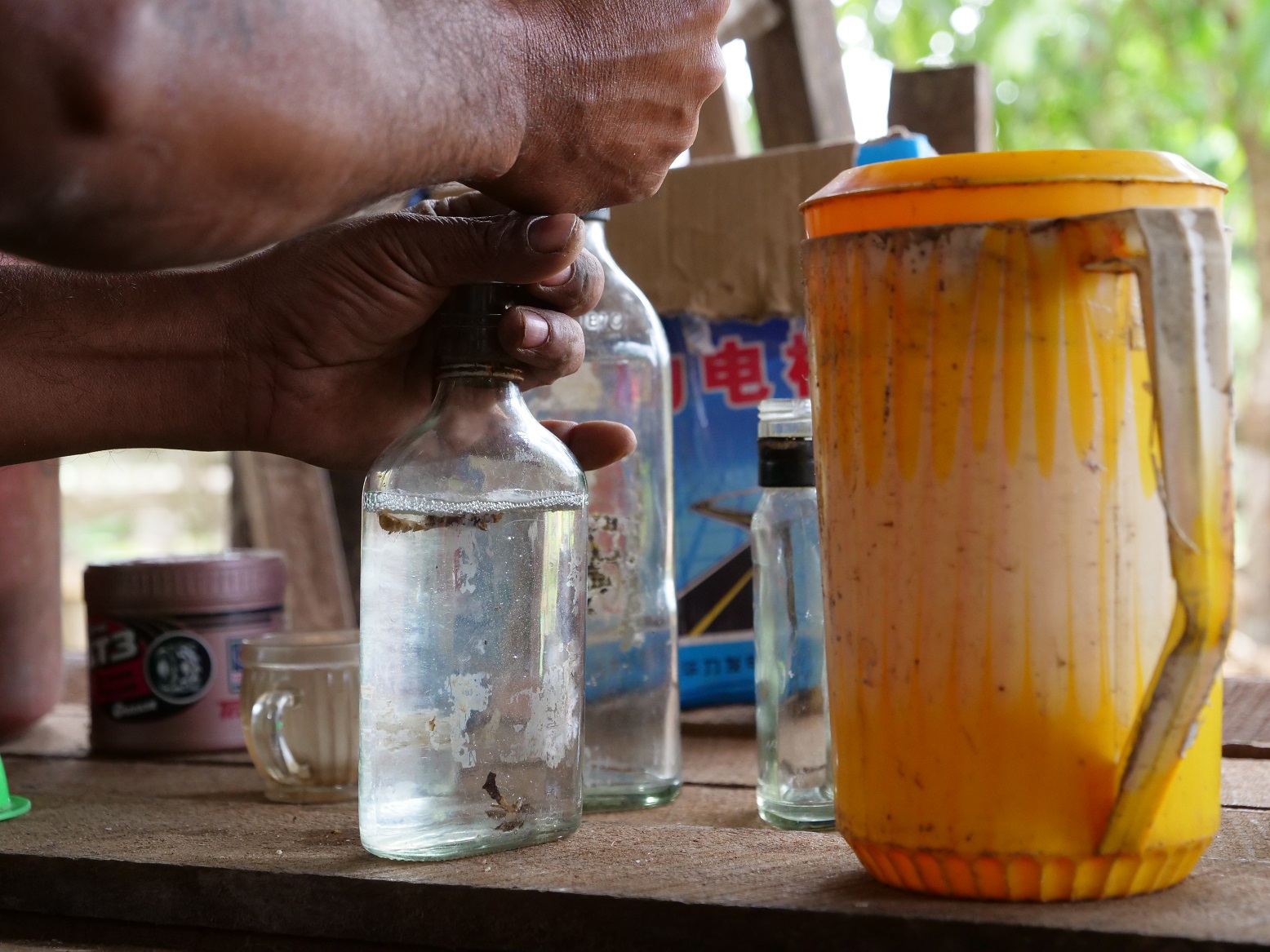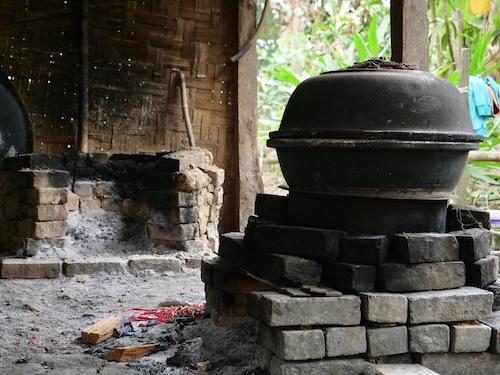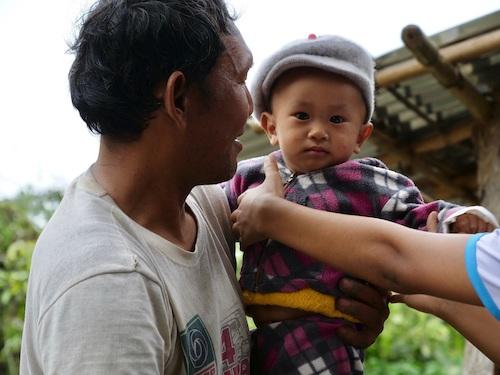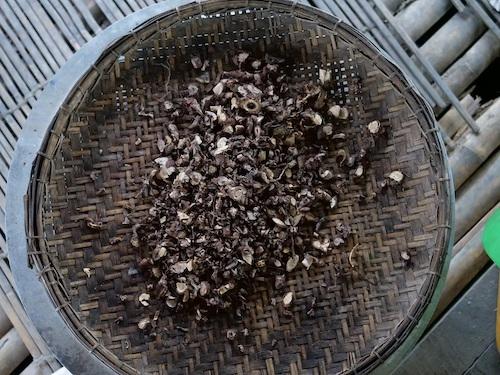
The home of U Po Zo, 48, sits in a quiet corner of Lon Ton village on Myanmar’s largest lake, Indawgyi.
Few visitors to the area would have much reason for going here. It’s not on the water or in the mountains, but there is something special going on.
Around the village, a few shops sell homemade alcohol that all comes from the same source—U Po Zo. Near the military checkpoint is the best spot to sample the different flavours and buy some other local delicacies such as dried fruit and fish paste.
The most popular tipple is Kachin ayet (Kachin liquor), a strong punch of herbs and smoke that leaves a silky smooth finish. Costing 1,000 kyats per bottle, it also makes a great marinade and a pinch will help start a barbecue.
Like many people in the village, U Po Zo does a little bit of everything. He farms, builds houses, and can repair just about anything. But unlike his neighbours, he keeps a metal still in his backyard.
The distillation process begins with rice harvested from his fields. His family rises early and cooks a large pot of sticky rice, which is cooled on thatched palm mats.
U Po Zo then mixes it with yeast along with other ingredients and lets it ferment in clay pots for a few days. Finally, he cooks the rice in the still and within a few hours he has several litres of rice alcohol.
Many factors will determine the strength and quality of the brew. For example, colder weather requires higher alcohol content; too much rain and moisture and it will not distil properly. Then there are his customers.
Around Indawgyi, three different cultures come together: Shan-ni, Kachin, and Burmese. Although somewhat remote, these villages have always been on a trade artery that connects the mining region of Hpakant with Mandalay.
During the colonial era, the area was strategic for its importance in the teak trade, it’s home to Myanmar’s first forest reserve and has gold reserves. There were also major battles around here during World War Two. Simply put, underneath the serene atmosphere is a rich and vibrant history that brought many kinds of people together.
This abundance of opportunities drew U Po Zo’s family from Shan state to Indawgyi, where he married a Shan-ni woman and decided to continue his family’s tradition of making alcohol. U Po Zo bottles up all this cultural diversity into every batch he makes.
And he makes whatever people want him to make, usually a Kachin-style liquor that starts with a batch of rice liquor infused with herbs brought to him by his customers. Many come down from the mountains with what locals call “the food of tigers.”
These include ginger, chilli, honey, and caraway, resulting in a reddish brew with an array of medicinal properties. U Po Zo recommends it for treating aches and pains and getting a good night’s sleep. Other herbal infusions have their own special benefits.
Kachin state often draws skewed perceptions of ethnic conflict, and although the region has serious problems, they don’t define those who live here.
This isn’t a place where lines are drawn in the sand. Instead, most people are happy to live and work alongside each other regardless of their background.
This is no clearer than in U Po Zo’s concoctions. He’ll brew up his best batch no matter who you are. All you have to do is bring the right herbs and tell him how strong you want it.
Planning a visit to Indawgyi lake? Contact sustainable tourism organization Face of Indawgyi to arrange for samplings of U Po Zo's brew.




